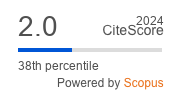P53/MDM2 Complex-Based Targeted Strategies in Colon Adenocarcinoma
DOI:
https://doi.org/10.5644/ama2006-124.398Keywords:
Colon, Carcinoma, p53-MDM2, Immunohistochemistry, GeneticsAbstract
In the current molecular review, we describe the mechanisms of TP53/MDM2 deregulation and their impact on the colon adenocarcinoma molecular substrate and phenotype. Among the genes that are critically altered in carcinogenesis, the TP53 tumor suppressor gene is of major importance. The TP53 gene (gene locus: 17p13.1) regulates the cell cycle by controlling the G1/S and G2/M checkpoints securing the normal sequence of cell cycle phases. Furthermore, it is involved in apoptosis programmed cell death. The gene is mutated or epigenetically altered in all epithelial malignancies, including colon adenocarcinoma. Additionally, Mouse Double Minute 2 Homolog (MDM2), a proto-oncogene (12q14.3), acts as a major negative regulator for p53 expression in the p53-MDM2 auto-regulatory pathway. MDM2 binds directly to p53 and represses its transcriptional activity, promoting p53 degradation.
Conclusion. In colon adenocarcinoma, MDM2 oncogene overexpression directly influences p53 oncoprotein expression levels.
Downloads
Published
Issue
Section
License
Copyright (c) 2023 Athanasios Niotis, Evangelos Tsiambas, Dimitrios Dimitroulis, Helen Sarlanis, Evangelos Falidas, Nikolaos Kavantzas, Constantinos A. Constantinides

This work is licensed under a Creative Commons Attribution-NonCommercial 4.0 International License.





